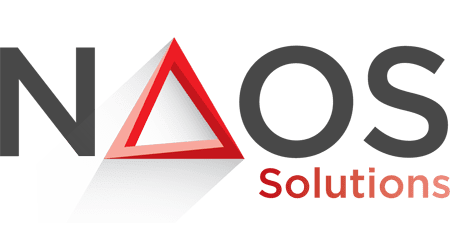A well-crafted Payroll Outsourcing Strategy is more than a convenience in today’s fast-paced business environment. It’s a competitive advantage. For HR managers and business leaders, especially in Egypt, the ability to efficiently manage payroll while navigating complex compliance landscapes is crucial.

At NAOS CX, we understand these aspirations intimately. With our extensive experience as a payroll outsourcing provider for various international and local companies in Egypt for the last ten years, we’ve developed deep insights and proven strategies that cater to this dynamic market’s unique challenges and opportunities.
This article aims to guide you toward achieving your desired outcomes from your payroll functions. From understanding the latest trends and benefits of various outsourcing models to navigating specific HR challenges and compliance risks, our goal is to equip you with the knowledge and tools for making informed, strategic decisions in payroll management.
TRENDS IN PAYROLL OUTSOURCING AND ITS BENEFITS
Understanding Payroll Outsourcing Strategy: Fully Outsourced Vs. Co-Outsourced Models And Market Growth Trends
Payroll outsourcing is when a company hires a third-party service provider to manage payroll-related administrative and compliance tasks for its employees. According to recent market research, the global payroll outsourcing market is expected to grow at a CAGR of 7.2% from 2022 to 2031, with a projected value of $19.5 billion by 2031.
According to a 2019 global survey by Statista, small organizations are more inclined to outsource their payroll function than larger organizations. The survey found that 15 percent of organizations with less than 2,500 employees outsource their payroll, while only eight percent of organizations with more than 10,000 employees do the same.

When it comes to payroll processing, there are different levels of involvement between fully outsourcing and co-outsourcing, both from the company and the service provider.
Full payroll outsourcing is when a company hires a payroll outsourcing firm to handle all payroll functions, including compliance with payroll and employment laws. This approach is chosen by companies wishing to focus on their core business activities.
Payroll co-outsourcing, on the other hand, is a hybrid model. When a company wants to maintain control over payroll while benefiting from a payroll provider’s expertise, they often choose this option. This model allows for greater flexibility and control over payroll.
For example, a company can choose:
- To outsource the payroll calculations and keep the payment processing in-house.
- To outsource only the tax filing and compliance to a service provider and keep the employees’ payroll inquiries in-house.
All configurations are feasible, and co-outsourcing provides excellent flexibility to adapt to each company’s specific context and requirements.
Detailed Benefits of Payroll Outsourcing
Cost Savings
Outsourcing payroll can lead to significant cost savings by eliminating the need to invest in specialized software, hire additional staff, and train employees on complex payroll processes.
Focus on Core Competencies
Outsourcing allows businesses to redirect their focus and resources toward core business activities, enhancing overall efficiency and productivity.
Access to Expertise
Payroll service providers are experts in tax regulations and payroll processing. Outsourcing ensures that professionals with specialized knowledge handle payroll tasks, reducing the risk of errors and ensuring compliance.
Enhanced Security Measures
Reputable payroll outsourcing companies employ advanced security measures to protect sensitive employee data, often surpassing the security measures implemented by individual businesses.

Scalability and Flexibility
Payroll outsourcing services can quickly scale with business growth. Whether a company is expanding or downsizing, outsourcing providers can adjust services accordingly, providing flexibility and cost-effectiveness.
Timely and Accurate Processing
Payroll service providers are equipped with streamlined processes and dedicated teams, ensuring timely and accurate payroll processing. This reduces the likelihood of errors and avoids issues related to delayed payments.
Reduced Compliance Risks
Outsourcing payroll to experts helps mitigate compliance risks. Service providers stay current with changing regulations, ensuring payroll processes align with the latest legal requirements.

Improved Employee Satisfaction
Timely and accurate payroll processing contributes to employee satisfaction. Outsourcing eliminates payroll-related issues, such as calculation errors or delayed payments, improving overall employee morale.
Payroll Outsourcing Addressing Specific HR Pain Points
HR departments face unique challenges in today’s dynamic business landscape, particularly in Egypt and the MENA region. Payroll outsourcing emerges as a strategic solution for streamlining processes, navigating the complexities of economic and legal environments, and managing workforce fluctuations. This section delves into how payroll outsourcing addresses these critical HR pain points.
Navigating The Volatile Egyptian Economy And The Evolving Labor Laws
The fluctuating Egyptian economy poses significant challenges for HR departments, from budgeting constraints to strategic planning uncertainties. Outsourcing payroll can provide a buffer against these economic fluctuations. By transferring payroll responsibilities to external experts, companies can achieve more predictable payroll management costs, allowing better budget control and financial planning.

With constantly changing labor laws, maintaining compliance is a moving target for HR departments. Missteps can lead to legal repercussions and financial penalties (see later in the article). Payroll outsourcing experts stay abreast of the latest legal changes, ensuring compliance. Their expertise in the nuances of Egyptian labor laws relieves the HR department of the burden of continuous legal monitoring and adjustment.
Managing Seasonal Workforce Fluctuations
Most companies face significant variations in workforce requirements during peak seasons such as Ramadan and Black Friday. These fluctuations strain HR departments, as they must adjust payroll processes rapidly to accommodate changing workforce numbers.
Outsourcing payroll provides the scalability needed to handle workforce changes efficiently. Payroll service providers are adept at adjusting their services to match client needs swiftly, whether scaling up for a busy season or scaling down afterward. By outsourcing, companies only pay for the payroll services they need when they need them. This approach is particularly cost-effective for handling seasonal workforce changes, as it avoids the financial burden of maintaining a fully staffed, in-house payroll team year-round.
PAYROLL PROCESSING COMPLIANCE MISTAKES: UNDERSTANDING THE RISKS
Like in many other countries, payroll processing in Egypt involves several compliance aspects that need careful attention. Failure to adhere to tax laws, labor laws, governmental regulations, branches, and statutory agreements can result in serious risks. Here are the main risks associated with compliance mistakes in payroll processing in Egypt:
Penalties for Non-Compliance with Tax Laws
Egypt has specific tax laws and regulations that employers must follow. Incorrect tax deductions or failure to report employee earnings correctly can result in fines and penalties.
Labor Law Violations
The Egyptian labor law has strict guidelines regarding wages, overtime, benefits, and other aspects of employment. Non-compliance with these regulations can lead to legal actions and reputational damage.

Errors in Social Security Contributions
Employers in Egypt must contribute to social security on behalf of their employees. Mistakes in these contributions can lead to penalties and affect the employees’ future benefits.
Incorrect Employee Data Management
Maintaining accurate employee data is crucial. Errors in personal details, employment terms, or benefits can lead to legal issues and employee dissatisfaction.
Delayed or Incorrect Salary Payments
Timely and accurate salary payments are legally required. Delays or payment mistakes can lead to employee grievances and potential legal disputes.
Data Privacy Breaches
Employers must ensure the confidentiality and security of employee data. Non-compliance with data protection laws can result in legal actions and loss of trust among employees.
Non-Adherence to Minimum Wage Standards
Failing to comply with the national minimum wage regulations can lead to fines and legal challenges.

Inadequate Record Keeping
During audits or legal proceedings, the burden of proof rests on the company. With proper documentation, the company may find it easier to defend its payroll practices, potentially leading to legal repercussions, fines, or penalties.
Maintaining accurate and comprehensive payroll records is a fundamental aspect of business operations. It’s not just a matter of administrative diligence; it’s a critical safeguard against legal and financial risks.
Inconsistency in Applying Payroll Policies
Inconsistent application of payroll policies can result in discrimination claims and damage the employer’s reputation.
Exchange Rate Fluctuations
For multinational companies, fluctuating exchange rates can complicate payroll processing, especially when converting salaries to the local currency.
RISK MITIGATION AND ADAPTABILITY IN PAYROLL OUTSOURCING STRATEGY
Comparing Risk Mitigation: In-House vs. Outsourced Payroll
Beyond costs, other factors like efficiency, risk mitigation, and adaptability play a crucial role. In-house payroll can face challenges in scalability, requiring continuous investment in technology and being prone to operational errors. Outsourcing offers scalability and predictable costs, with specialized expertise that reduces the likelihood of mistakes.
In terms of risk mitigation, in-house payroll carries compliance and data security risks due to the need for constant updates on regulations and potential vulnerabilities in data systems. Outsourcing providers specialize in compliance and often have robust data security protocols, minimizing these risks.
Adapting to change also varies between the two models. In-house systems may struggle with flexibility in the face of changing business needs or regulations, whereas outsourcing firms typically offer more adaptable solutions that can evolve with business requirements.
In summary, outsourcing presents a strong case regarding efficiency, cost predictability, and risk management for a mid-sized company with growing payroll needs. While in-house payroll management brings substantial direct and indirect costs, outsourcing offers a streamlined, scalable solution, allowing companies to focus more on their core business activities.

Adapting to Change: Flexibility in Payroll Outsourcing Models
Tailoring Solutions: Addressing Unique Business Needs
Payroll outsourcing must meet each client’s needs. Providers can offer additional services such as customizing reporting formats for more insightful payroll analytics, addressing unique tax jurisdiction complexities, or ensuring seamless integration with existing HR systems.
In regulated industries, providers can offer specialized support to ensure compliance with sector-specific regulations, giving businesses a crucial layer of security and compliance assurance. By providing tailored solutions, payroll service providers enhance their offerings and align them closely with their client’s strategic business objectives, ensuring that every unique payroll need is addressed accurately and professionally.
Diverse Offerings: A Menu of Specialized Support
- Custom Reports and Analytics: Tailored reporting goes beyond standard pay statements. Providers offering additional services create customized reports and analytics, giving businesses valuable insights into payroll trends, workforce costs, and financial analytics.
- End-of-Year Tasks: Closing the fiscal year involves intricate tasks, from generating annual tax forms to reconciling year-end financials. Additional services may encompass comprehensive support for these critical end-of-year activities, reducing the burden on internal teams.
- Integration with Other HR Functions: Payroll is intertwined with various HR functions. Outsourcing providers offering additional services may facilitate seamless integration with HR software, time and attendance systems, and other relevant platforms for a unified HR ecosystem.
ACTIONABLE TIPS AND BEST PRACTICES IN PAYROLL OUTSOURCING
This section provides practical guidance for businesses considering payroll outsourcing, especially in Egypt and the MENA region. We’ll outline a step-by-step approach to implementing payroll outsourcing and share best practices for ensuring a smooth transition. These insights are precious for HR managers and directors aiming to optimize their payroll operations while navigating the unique challenges of their locales.
Detailed Step-by-Step Guide to Implementing Payroll Outsourcing
Implementing payroll outsourcing is a significant decision for any business, particularly in the dynamic markets of Egypt and the MENA region. This comprehensive guide provides a step-by-step approach to ensure a successful transition tailored to businesses’ unique challenges and requirements in these areas.
Initial Assessment and Goal Setting
-
- Internal Audit: Conduct a thorough audit of your current payroll system. Identify pain points, inefficiencies, and areas needing improvement.
- Define Objectives: Clearly outline what you want to achieve with payroll outsourcing, such as cost reduction, compliance management, or process efficiency.
- Stakeholder Involvement: Engage key stakeholders early, including top management and HR staff, to align goals and expectations.
Market Research and Provider Shortlisting
-
- Market Analysis: Research the payroll outsourcing market in Egypt and the MENA region. Look for trends, standard practices, and service benchmarks.
- Create a Provider Shortlist: List potential payroll outsourcing providers based on your research. Prioritize those with strong regional expertise and a track record of handling businesses like yours.
In-Depth Provider Evaluation
-
- Service Scope Review: Examine each provider’s range of services. Ensure they cover essential functions like tax compliance, payroll processing, and reporting.
- Technology and Integration: Assess the technology used by providers. Check for integration capabilities with your existing HR systems.
- Compliance and Expertise: Evaluate the provider’s local and regional compliance expertise. Verify their understanding of Egyptian labor laws and tax regulations.
- References and Case Studies: Request and review references and case studies, specifically focusing on businesses in Egypt and the MENA region.
Request for Proposal (RFP) Process
-
- Develop an RFP Document: Create a comprehensive RFP outlining your payroll needs, expectations, and specific requirements.
- RFP Distribution and Response Analysis: Send the RFP to your shortlisted providers. Once responses are received, analyze them in detail to assess how well each provider meets your criteria.
Provider Selection and Contract Negotiation
-
- Selection Criteria: Use a systematic approach to evaluate responses. Consider factors like cost, service quality, experience, and cultural fit.
- Negotiation: Engage in negotiations with the selected provider. Discuss contract terms, pricing, service level agreements (SLAs), and confidentiality clauses.
- Contract Finalization: Review and finalize the contract with legal and financial advisors to ensure all terms are clear and favorable.
Best Practices for Smooth Transition
Plan The Transition And Implement The New System
Create a team with members from both your organization and the payroll provider. Ensure it includes individuals with expertise in HR, finance, and IT. You will need to clearly outline the roles and responsibilities of each team member to avoid confusion and ensure accountability.
Establish a practical timeline, considering your company’s and the provider’s capabilities. For this, it helps to break down the transition into manageable stages with specific milestones. This could include data migration completion, first payroll run, etc.
Make sure to allocate sufficient time for training sessions and the migration of payroll data. Ensure backup plans are in place for data security.

Effective Employee Communication
It’s essential to inform your employees about outsourcing decisions soon. Be transparent about the reasons behind the decision and how it will benefit the company and employees. It is also crucial to anticipate and address employee concerns in advance, such as job security or changes in payroll processes.
During the transition process, maintain open communication lines and ensure that all parties know who to contact if they have any questions or issues. Keep employees informed about any changes that may affect them.
Training and System Integration
Creating customized training sessions for HR staff and employees interacting with the new payroll system is crucial for a smooth transition. Hands-on training should be incorporated to ensure everyone is well-versed in the system’s functionalities and features.
Work closely with the provider to test the integration of their system with your existing infrastructure. Conduct tests simulating real-life payroll scenarios to check the system’s response and accuracy.
Go-Live and Monitoring
You may want to consider a soft launch with a smaller group before implementing the changes on a larger scale. This way, you can identify and resolve any issues arising during the early stages.
Ensure that your team and the service provider have a support system to address any immediate technical or operational issues.
To enhance the quality of the service, it is crucial to set up specific, achievable KPIs and SLAs, which can be regularly measured and evaluated. Collecting and reviewing feedback from employees and managers can help identify areas that require improvement, and implementing changes based on this feedback can lead to continuous service improvement.
Review and Continuous Improvement
It is recommended to schedule regular review meetings with your payroll service provider. You can discuss their performance, challenges, and potential improvements during these meetings. This will help you to continuously improve the payroll process in line with your evolving business needs.
It is essential to maintain flexibility in your payroll services to adapt to changes in your business, such as growth, downsizing, or regulatory changes. You can work with your provider to ensure the payroll services can be adjusted to align with these changes.
This detailed guide and practical tips will help businesses in Egypt and the MENA region navigate the complexities of implementing payroll outsourcing. By taking a structured, informed approach, your company can successfully transition to an outsourced payroll model, ensuring compliance, efficiency, and scalability in payroll operations.
CONCLUSION
In Egypt’s dynamic market, compliance and adaptability are essential for maintaining legal integrity and responding agilely to economic shifts. For businesses operating in Egypt’s ever-evolving economic and regulatory landscape, these elements are not just operational considerations but pivotal to sustaining growth, mitigating risk, and maintaining competitive advantage.
If you’re navigating these complex decisions and looking for tailored solutions that align with your company’s unique requirements, NAOS Talents is here to help. We encourage you to contact NAOS Talents to explore how payroll outsourcing can enhance your business’s efficiency and compliance. Our team is dedicated to helping you navigate these complex decisions with confidence. Let us assist you in transforming your payroll processes into a strategic advantage for your organization.

